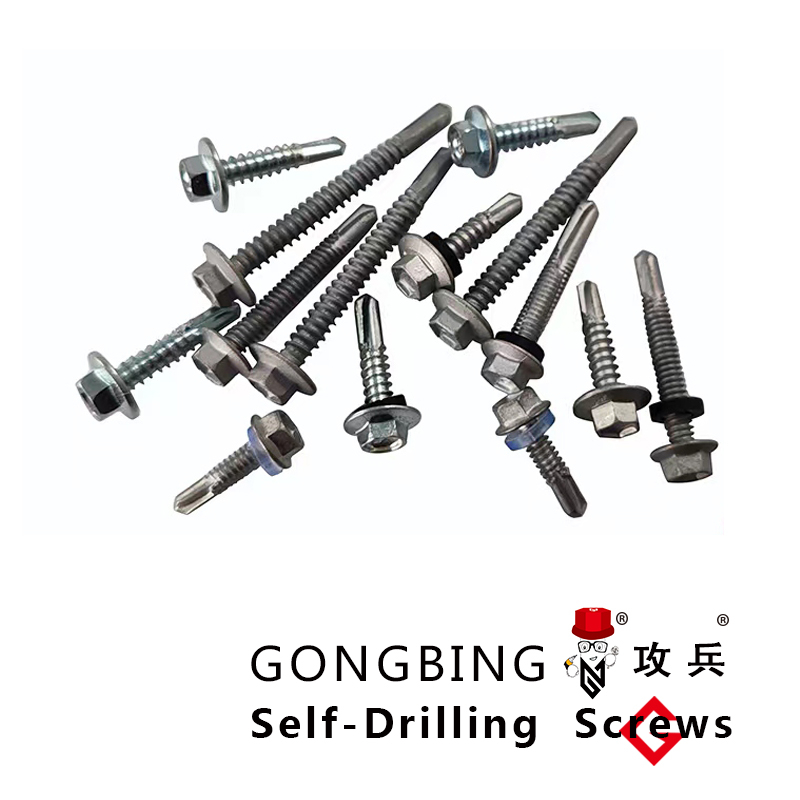chemset bolts
Understanding Chemset Bolts An In-Depth Look
In the world of construction and structural engineering, the choice of fastening systems can significantly impact the integrity and longevity of a project. Among the myriad options available, chemset bolts have emerged as a popular choice for professionals seeking a reliable and robust solution. This article delves into the specifics of chemset bolts, exploring their composition, applications, advantages, and installation methods.
What are Chemset Bolts?
Chemset bolts, often referred to as chemical anchors, are specialized fasteners designed to be used with a resin adhesive. These bolts consist of a steel bolt or threaded rod and are embedded into a hole filled with a two-part epoxy or resin. When installed, the chemical compound hardens, creating a strong bond between the bolt and the concrete or masonry substrate. This method of anchoring provides high tensile and shear strength, making chemset bolts suitable for demanding applications.
Composition and Types
The primary component of a chemset bolt is its steel body, which is usually manufactured from high-strength materials to withstand various loads. The resin used in chemset systems can vary, with common formulations including epoxy, polyester, and vinylester. Each type of resin has its own unique properties, allowing for versatility in different environmental conditions. For instance, epoxy resins offer excellent chemical resistance and bonding strength, while polyester resins are typically used in less demanding applications.
Chemset bolts come in various configurations, including standard bolts, rebar dowels, and specialty designs tailored for specific applications. Some chemset systems also feature additional elements, such as anchors with a countersunk head for flush mounting, enhancing their versatility.
Applications
Chemset bolts are widely used in a variety of sectors, including construction, civil engineering, and manufacturing. Common applications include
1. Structural Steelwork Chemset bolts are often utilized to connect structural steel elements to concrete bases, providing a secure and stable anchor point.
2. Facade Systems In residential and commercial buildings, chemset anchors are used for attaching cladding systems, ensuring stability and alignment.
3. Signage and Fixtures For mounting signs, shelves, and other fixtures onto concrete or masonry surfaces, chemset bolts provide a durable solution that can bear significant loads.
4. Bridges and Heavy Machinery Due to their high load capacities, chemset bolts are ideal for securing components in heavy infrastructure and machinery.
Advantages
chemset bolts

The popularity of chemset bolts can be attributed to several key advantages
- High Load Capacity Chemset bolts provide superior load-bearing capabilities compared to conventional mechanical anchors. This makes them suitable for high-stress applications.
- Versatility The ability to customize the resin and bolt design allows chemset systems to meet the specific requirements of different projects.
- Corrosion Resistance Many chemset bolts are designed with coatings that enhance their resistance to rust and corrosion, prolonging their lifespan in outdoor applications.
- Ease of Installation Installing chemset bolts is relatively straightforward, requiring minimal tools. The curing time of the resin can vary but generally allows for quick setting times.
Installation Process
The installation of chemset bolts involves several key steps
1. Drilling A hole is drilled into the substrate to the required depth and width.
2. Cleaning The hole must be thoroughly cleaned to remove any dust or debris to ensure optimal adhesion.
3. Resin Injection The resin is injected into the hole, filling it adequately.
4. Bolt Insertion The bolt is then inserted into the hole, ensuring it is positioned correctly.
5. Curing Finally, the resin is allowed to cure, solidifying the bond between the bolt and the substrate.
Conclusion
Chemset bolts are a versatile and efficient solution for a wide range of anchoring applications. With their high load capacity, ease of installation, and resistance to corrosion, they are becoming increasingly favored by engineers and contractors. As the construction industry continues to evolve, chemset technology will likely play a pivotal role in enhancing structural integrity and safety. For any construction professional, understanding and utilizing chemset bolts will undoubtedly lead to improved project outcomes and long-lasting results.
-
Weatherproof Plastic Expansion Anchors for OutdoorNewsJun.06,2025
-
Sustainability in the Supply Chain: Eco-Friendly TEK Screws ProductionNewsJun.06,2025
-
Load-Bearing Capacity of External Insulation FixingsNewsJun.06,2025
-
Double Head Bolts: Enhancing Efficiency in Industrial MachineryNewsJun.06,2025
-
Corrosion Resistance in Chipboard Screws: Coatings for Wholesale DurabilityNewsJun.06,2025
-
Butterfly Toggle Bolts : Enhancing Structural ResilienceNewsJun.06,2025
